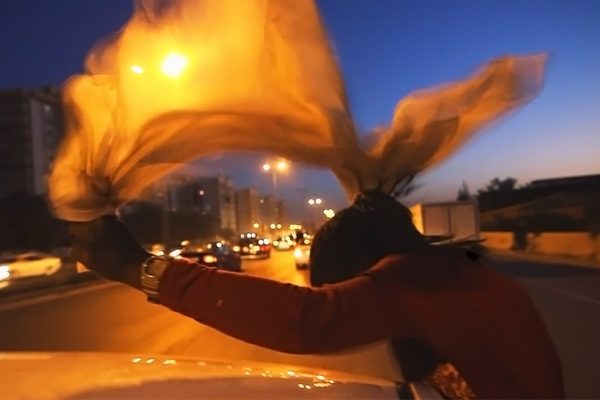@Filmhouse, Edinburgh until Sat 15 Jun 2019
The beautiful game. For oh so many of us, it’s a lifelong love. A trip to the pub with some friends, or maybe even a casual end of evening catch-up. Even for non-fans, it’s extensive reach makes us all fans for global events. Freedom Fields, a documentary by director and cinematographer Naziha Arebi looks for people we have never met, where football symbolises something inherently different.
As you read, the FIFA 2019 Women’s World Cup is underway. Experiencing a higher viewership and receiving a coverage worthy of its athletes. Across the nation, many are joining together to support a sisterhood of the players. In Libya, this echoes closer, going far beyond a professional level. For these women, this time on the sparse patches of grass is a breathing space, a freedom from the war, bullets and slog of their day to day endurance.
Arebi’s piece is told in three parts, adding a base three-act structure to the documentary, helping pace the film. To begin, we have hope. Hope that following the Libyan Civil War of 2011 and the death of Colonel Muammar Gaddafi, Libya would achieve a renewed moral axis. That a Western influence of democracy, gender equality and freedom would occur. We follow a group of women, as Arebi documents their lives, both on and off the pitch. For over a decade they have been Libya’s only national team of female footballers. They have, however, never been authorised to play a match.
The second and third acts follow the course of the next four years as we come to discover the cracks in this hope, failures of the government and backlash of religious bodies against the women. Some of the finer, more subtle editing occurs in these parts. As the streets of Libya whizz by, the glints of rhinestone and wedding dresses are repeated. Reminders to the expectations that many of these women face, as they say; ‘we are born to marry’.
An impressive backlog of suffering is kept at arm’s length from the camera to irregular effect. It makes for intense drama, snapping our attention, but conceals background pain we are aware of. Arebi’s cinematography is superb, the vivid colours of optimism, vastly contrast the sudden plunges into maddening darkness as Militia cut the electricity. Knowing precisely where to draw our attention, but we want to get to know these women more intimately. Never receiving a face to face interaction or interview makes for authenticity but neglects insight into a region which many audience members won’t fully comprehend.
What little atrocities we do focus on are handled tastefully, especially in terms of sound design. Giovanni Buccomino’s construct for the film is fitting, with North African themes throughout, including heavy reliance on Anasheed religious singing. As one woman attempts to make her way into Tunisia, the camera cuts. We hear implications of threats, requesting to talk with her male guardian. The dread lingers as we know she has none. Tastefully, the backing score fades, silence is thus utilised with enormous respect to heighten the tension.
The climax is not a grand victory for the team, nor is it the calming of Libya’s climate. Arebi captures the looks on the young girl’s faces as they see a training ground, run by the past players of Fadwa’s 11. Doctors, Accountants and mothers now help to educate and train a generation of players, medics and hopeful presidents. Freedom Fields is an intimate documentary, focusing on these women and their fight to be recognised amidst oppression. It looks for sisterhood, equality but far more importantly – future.
